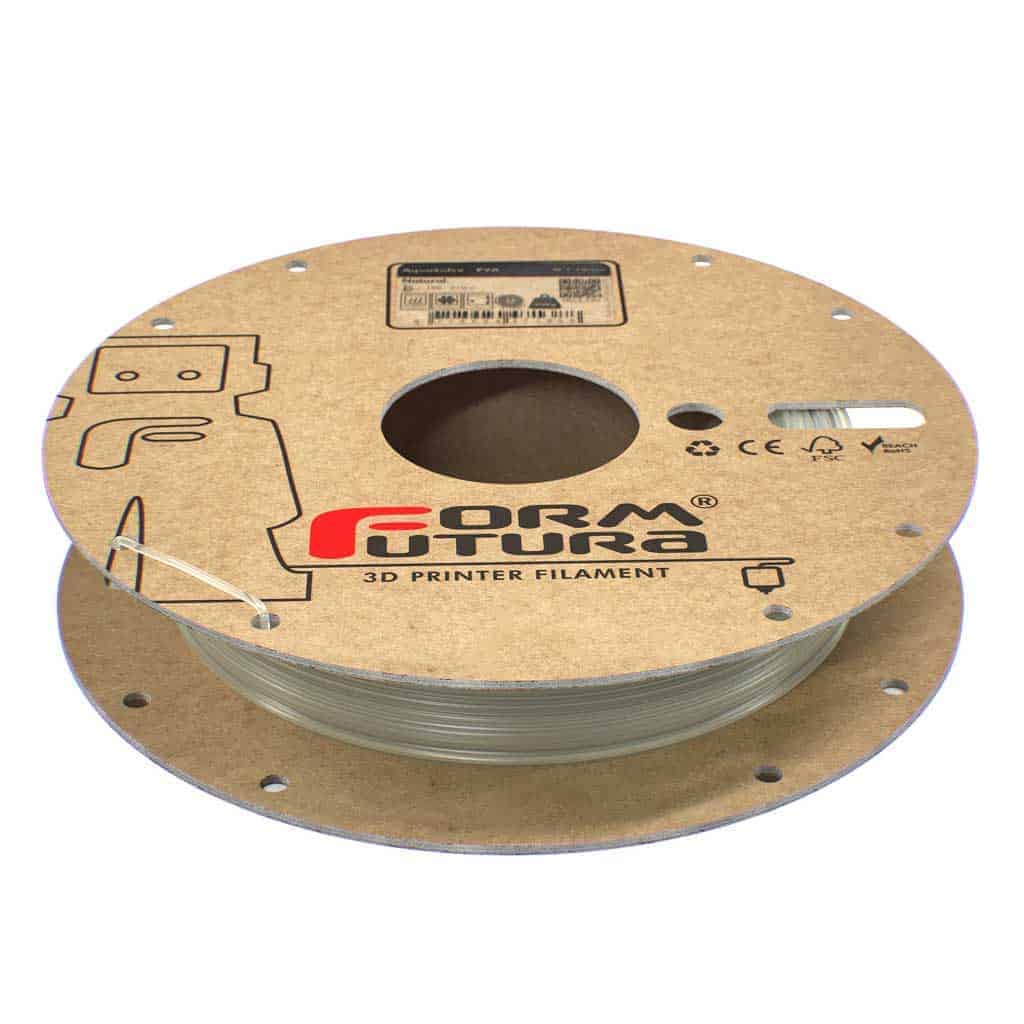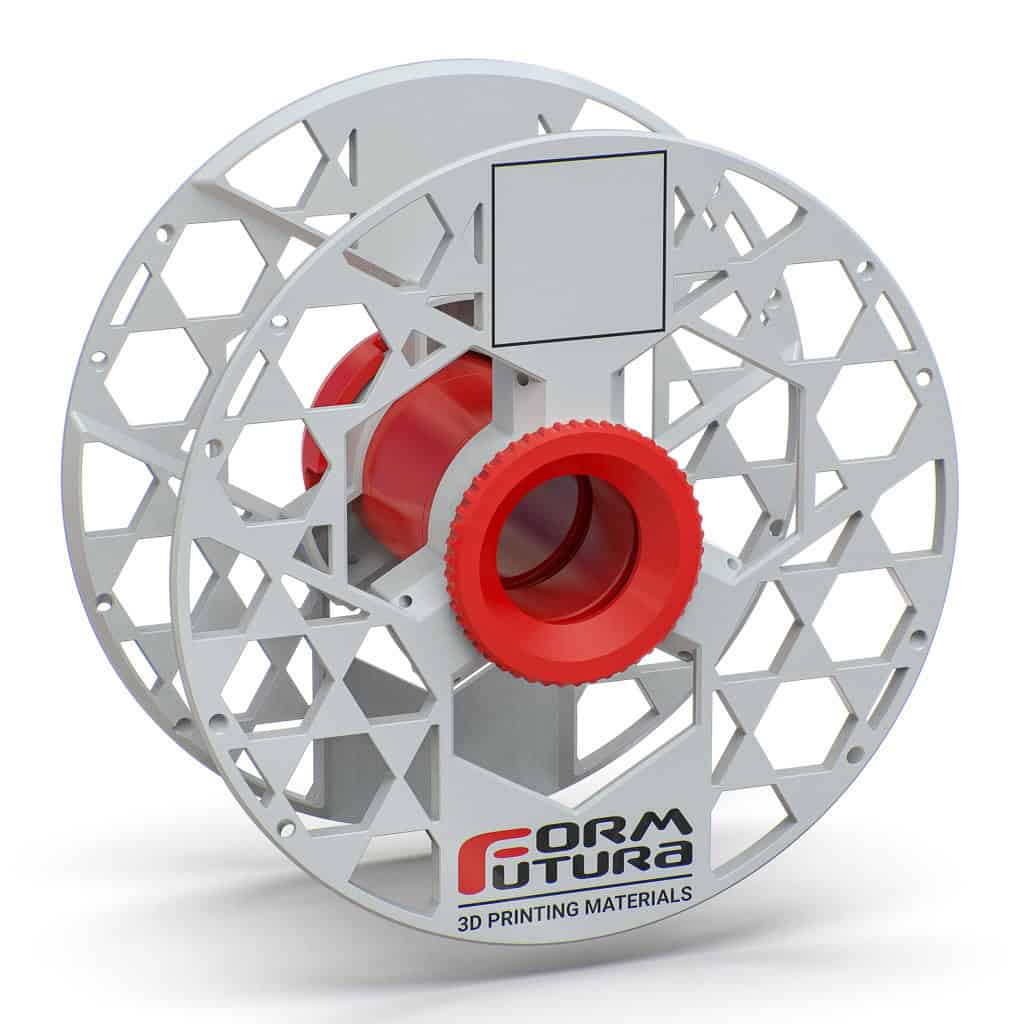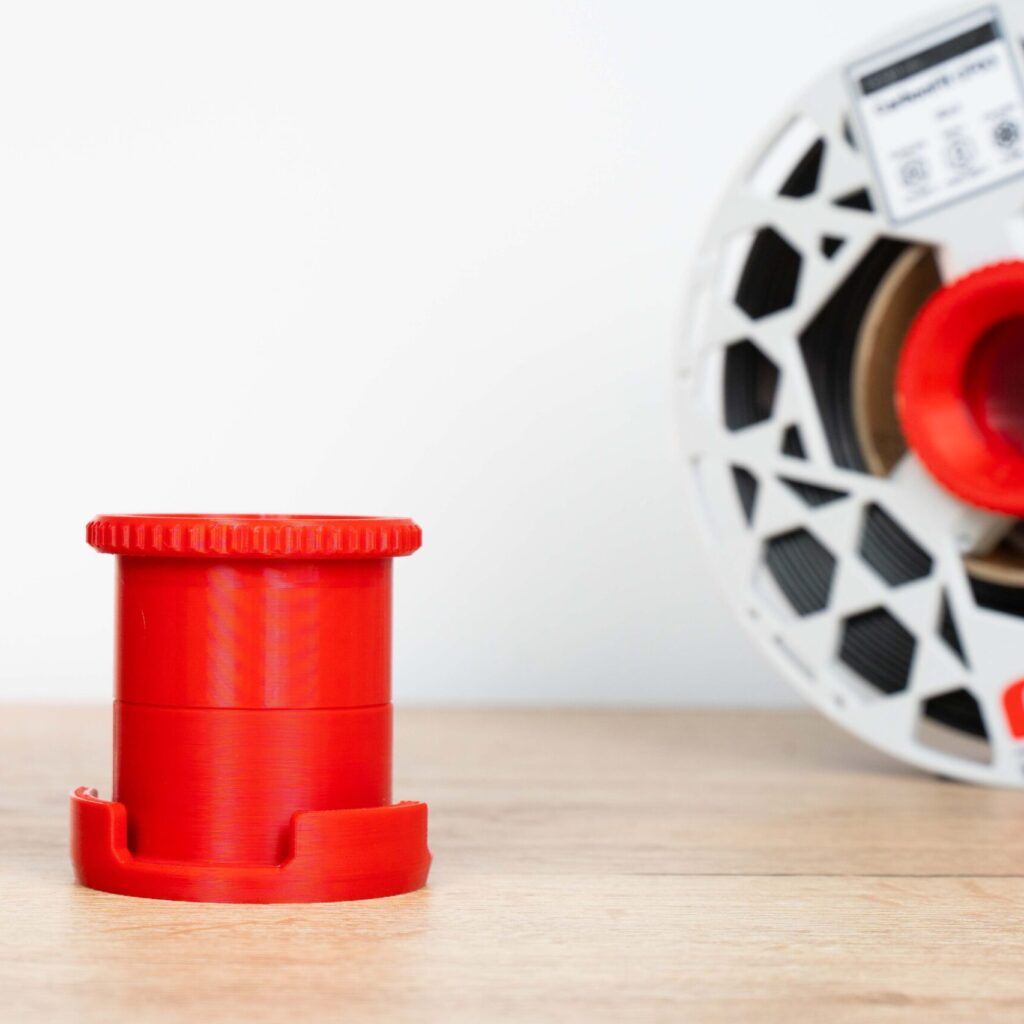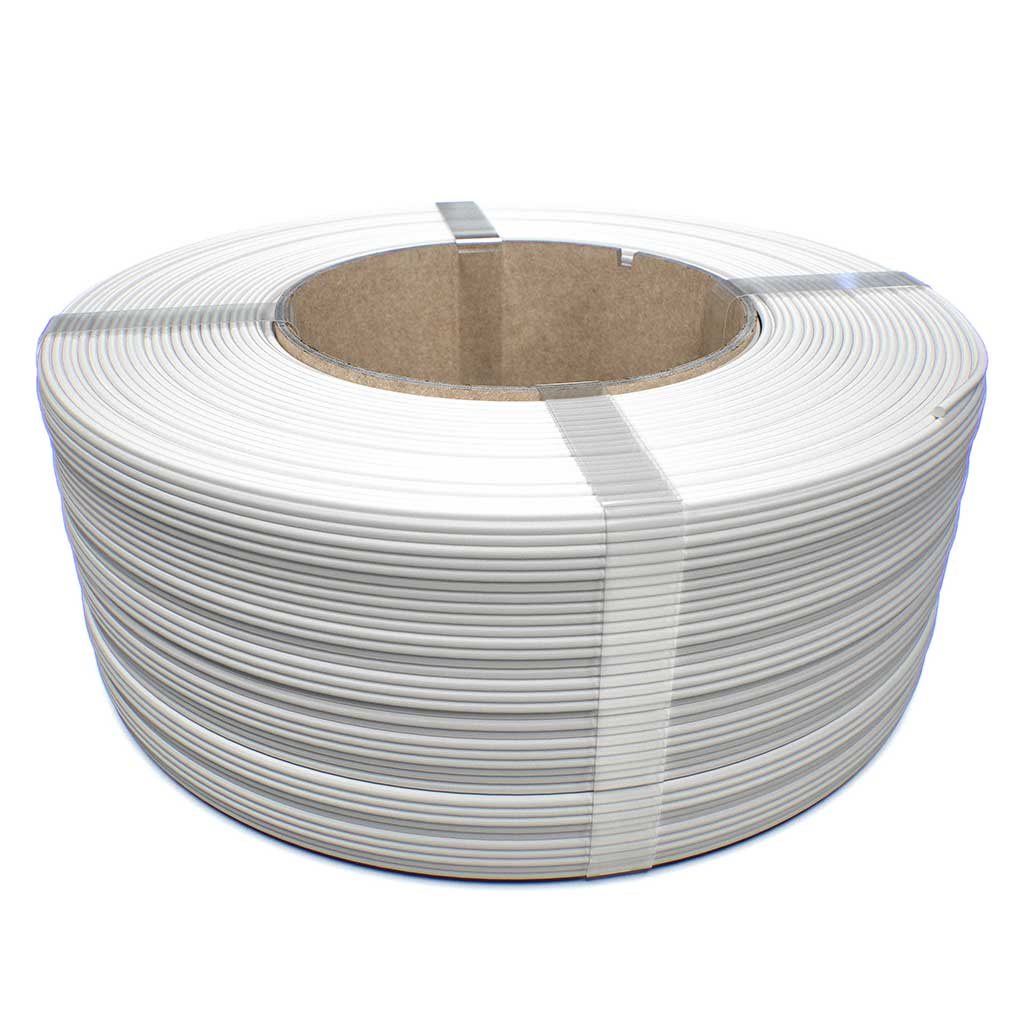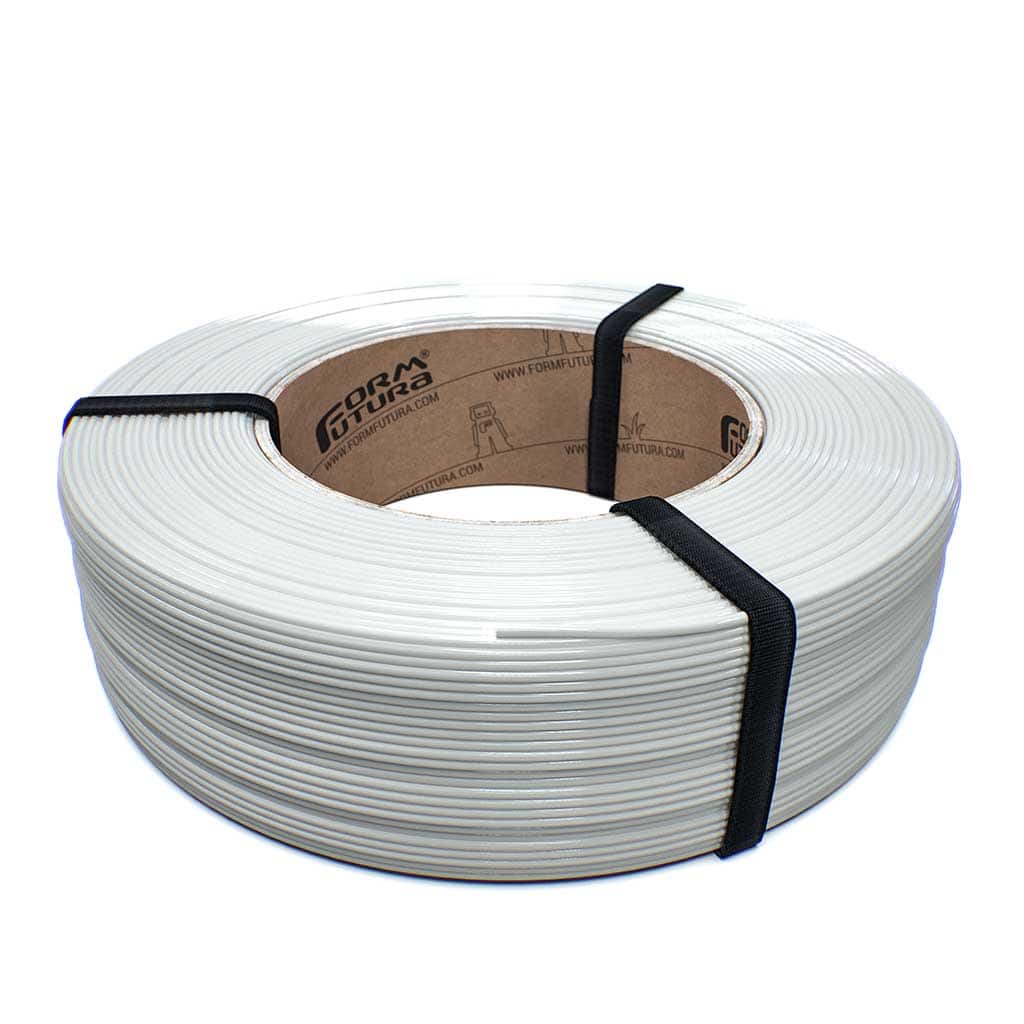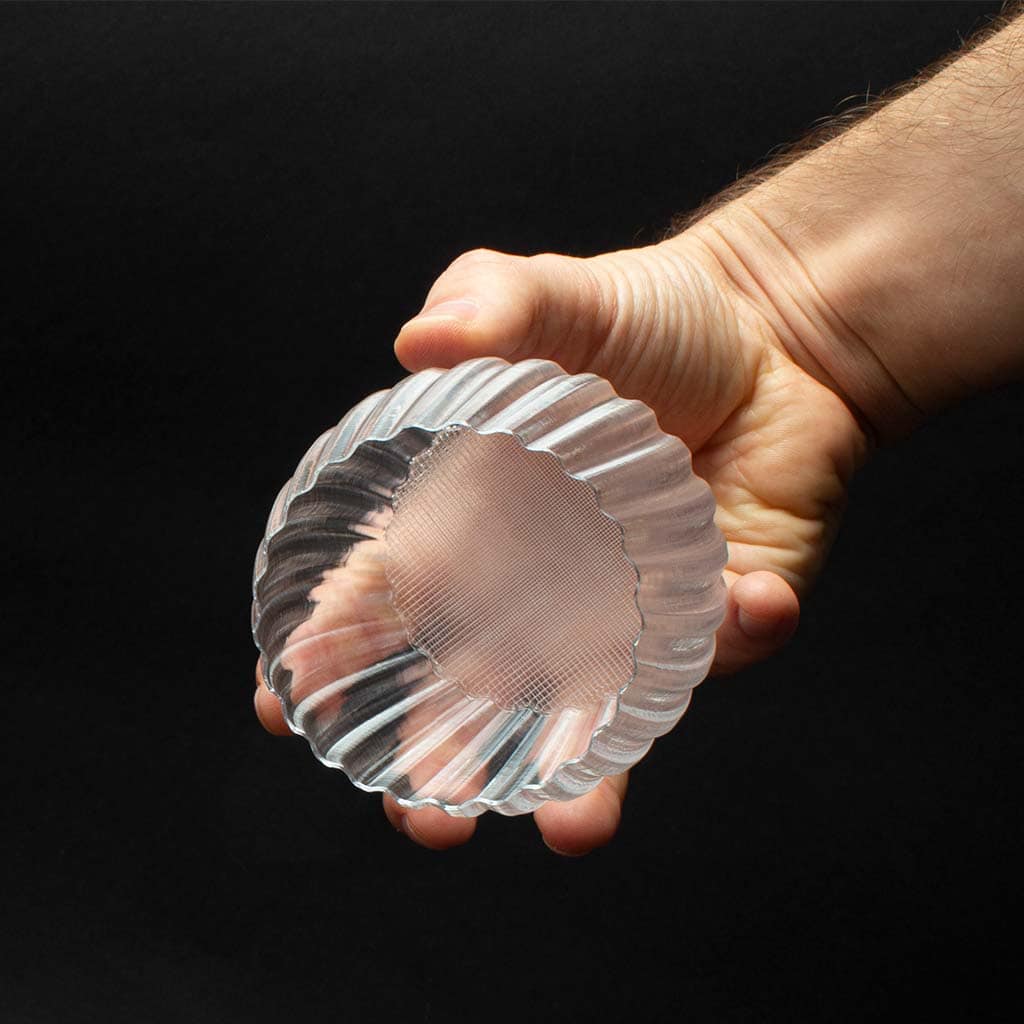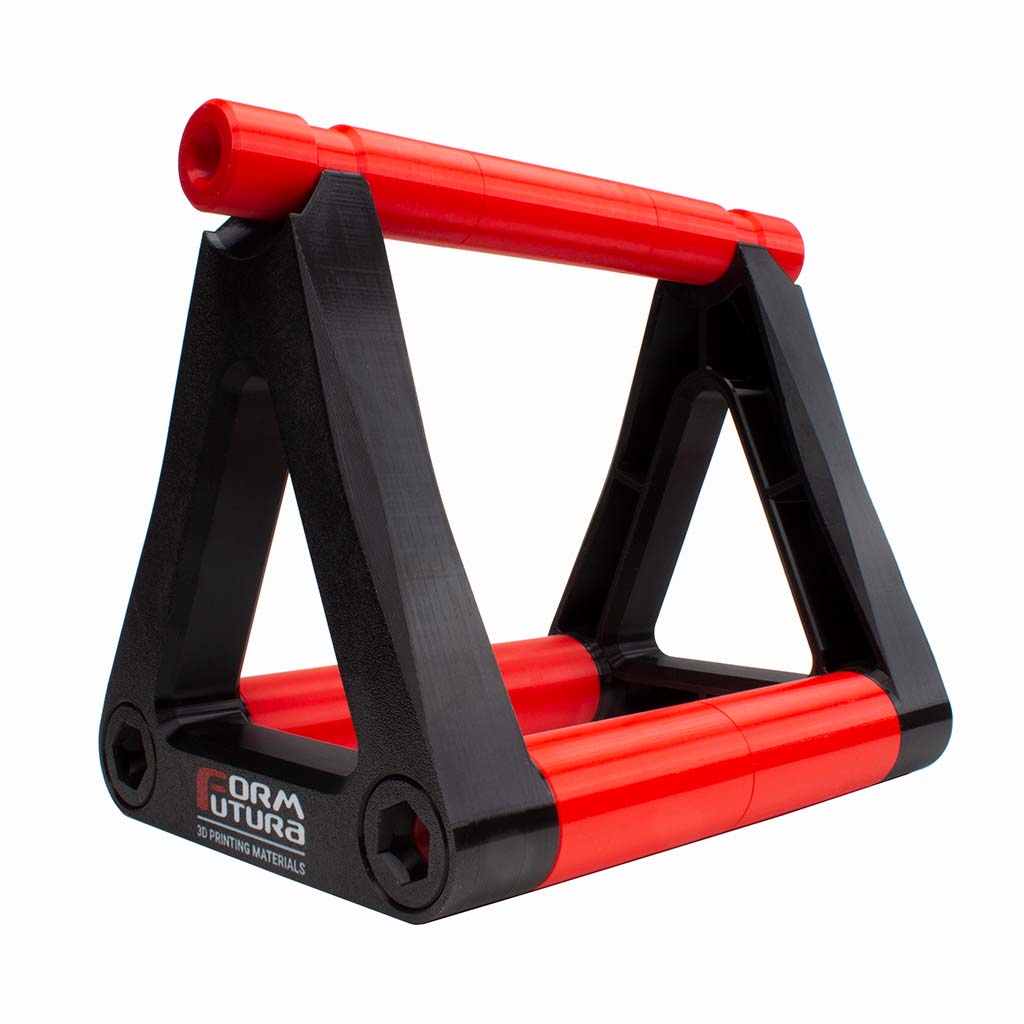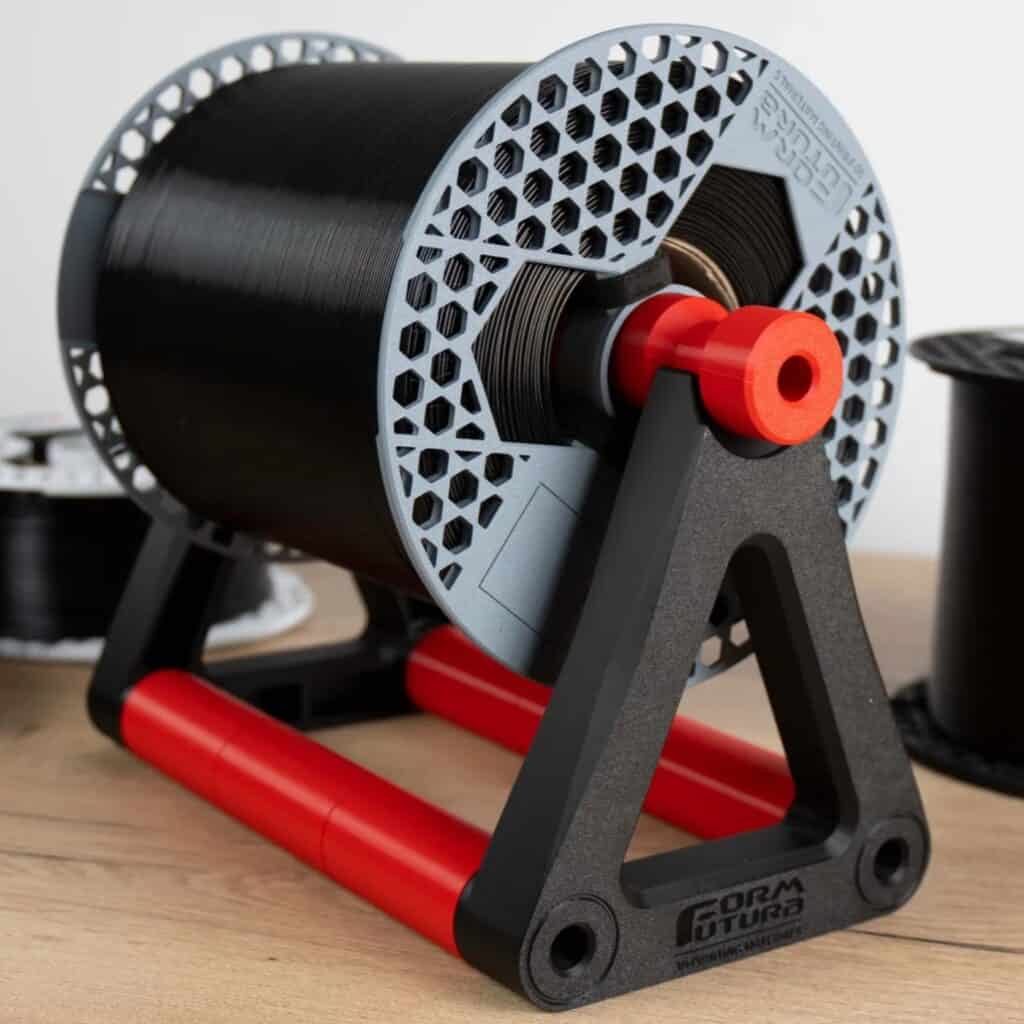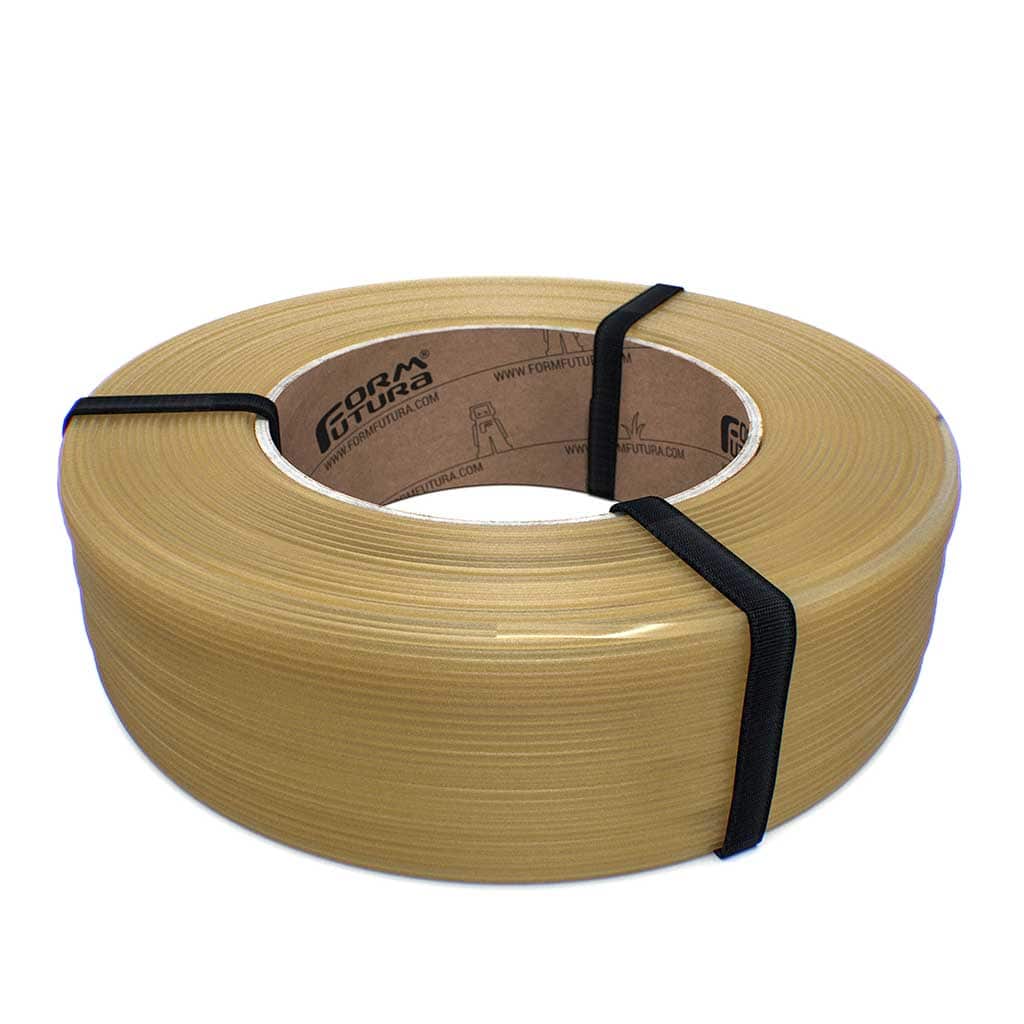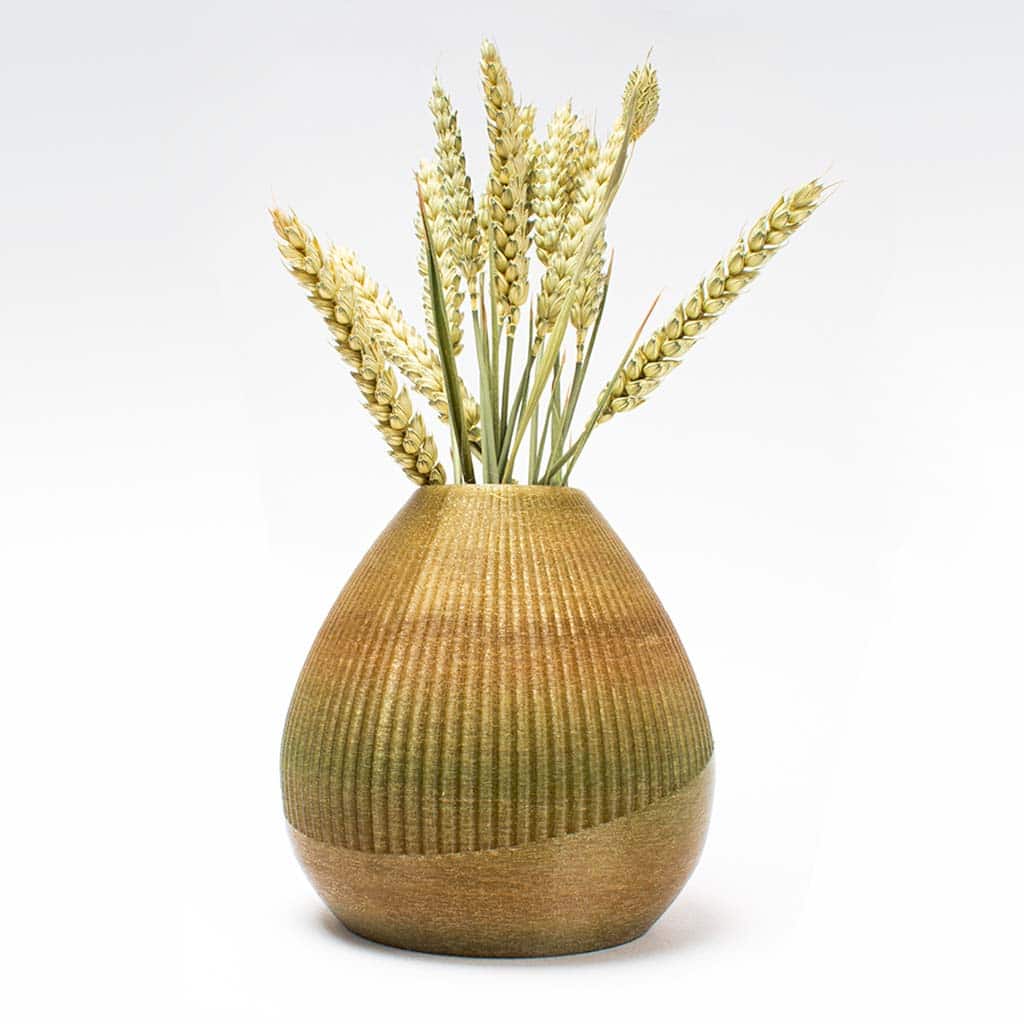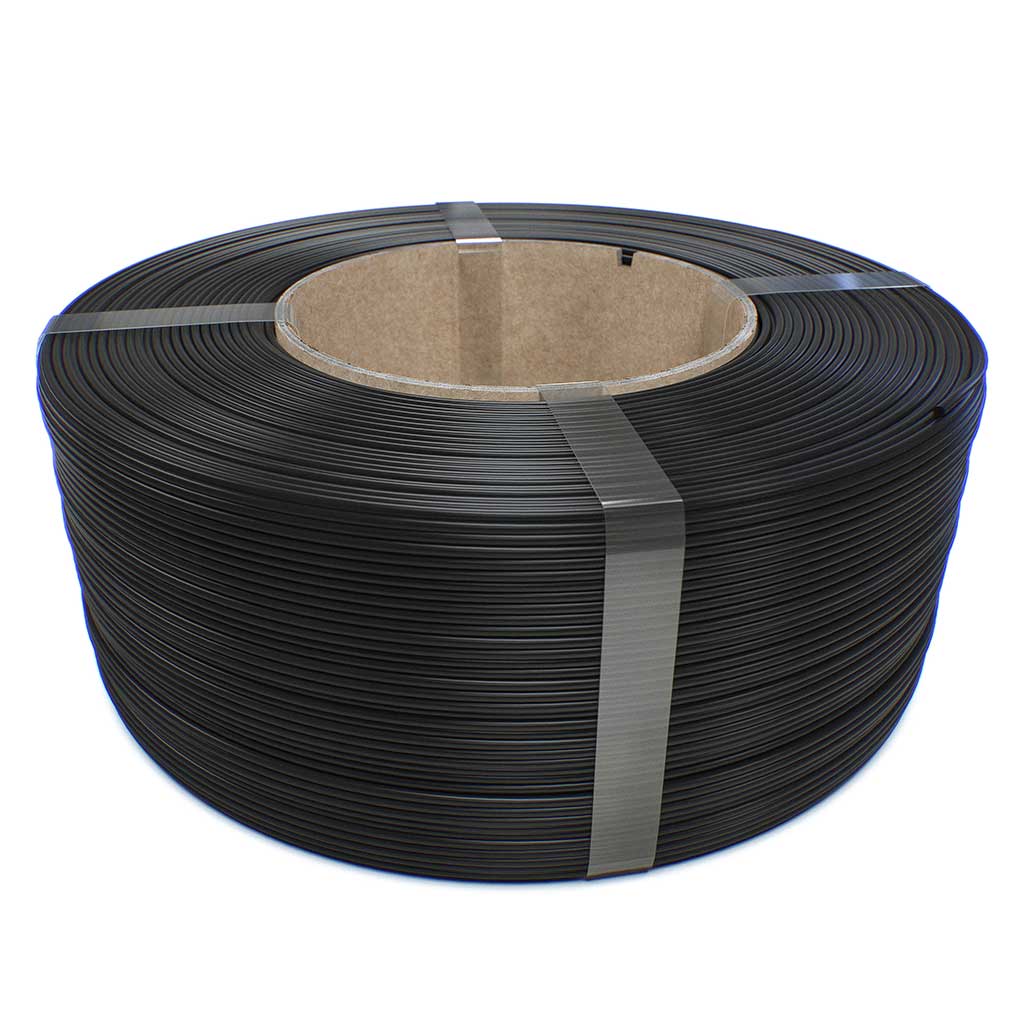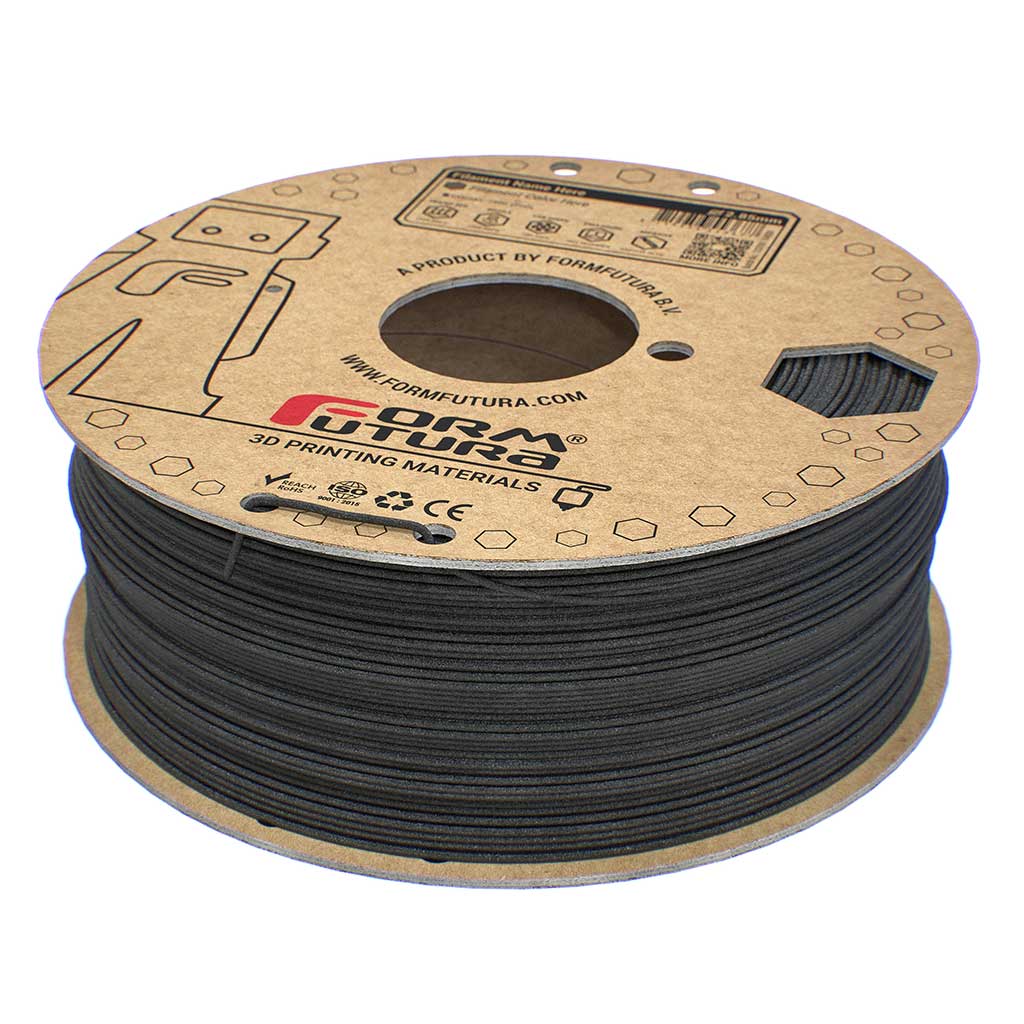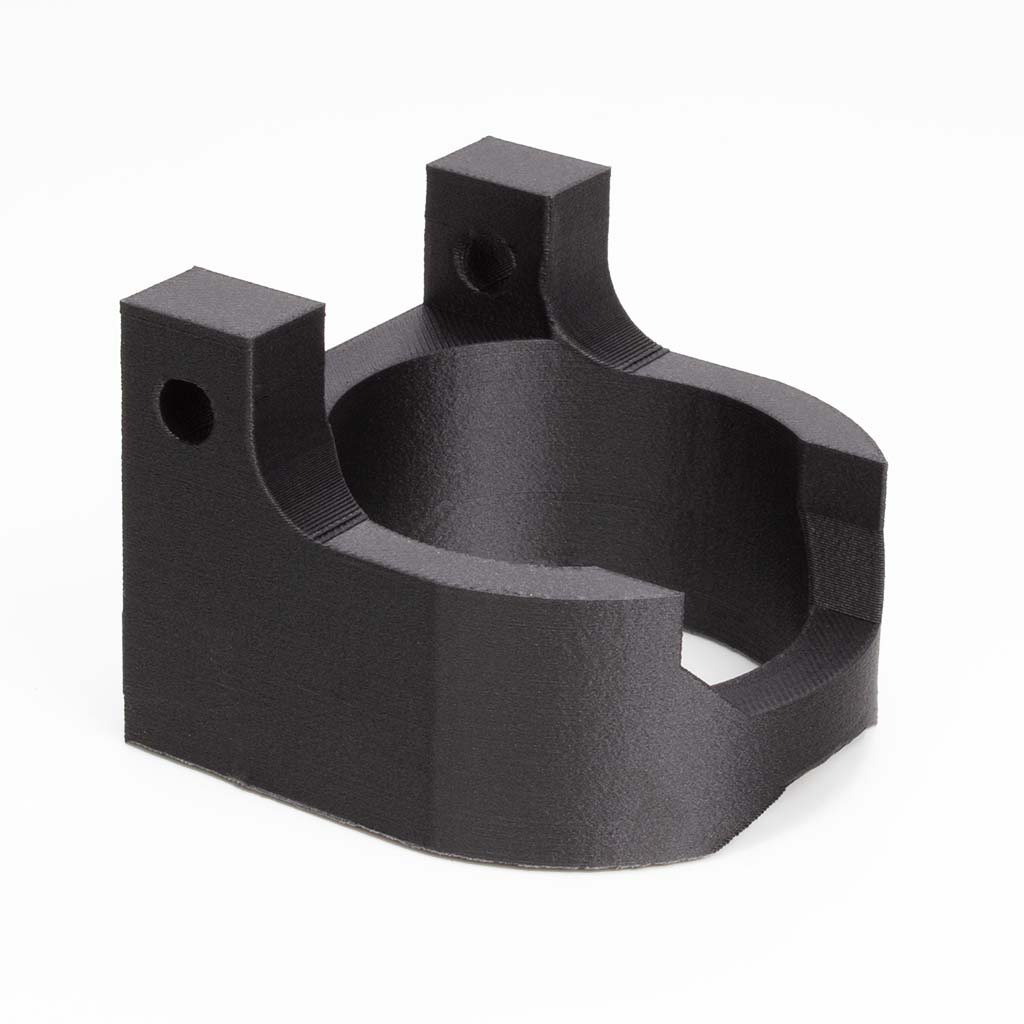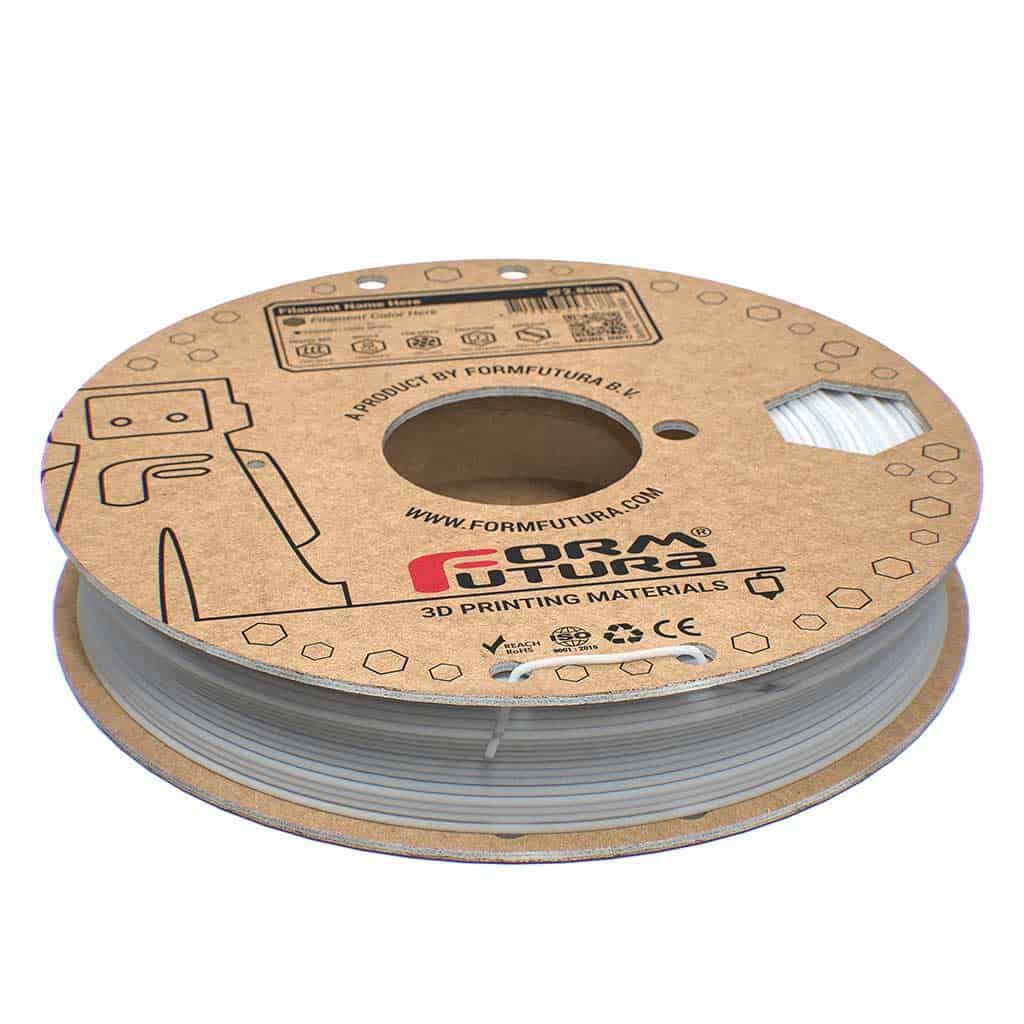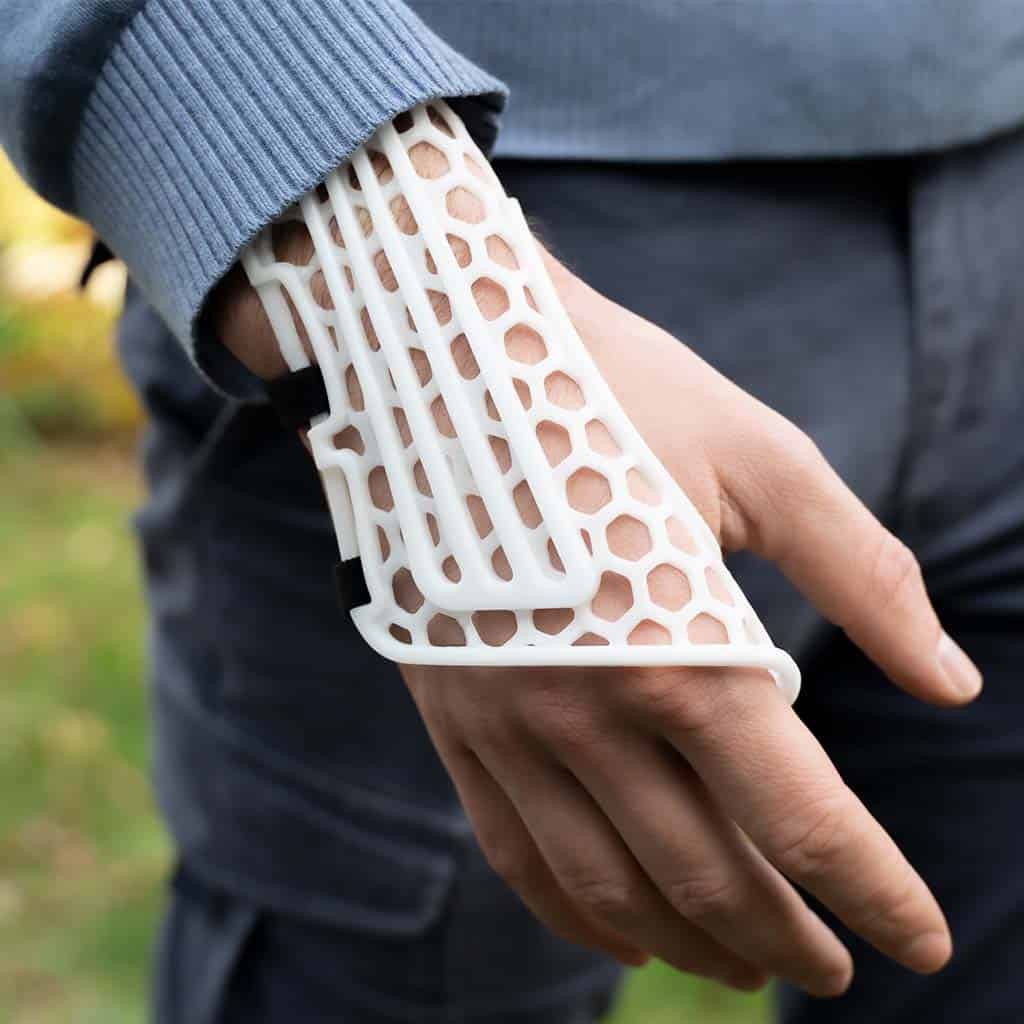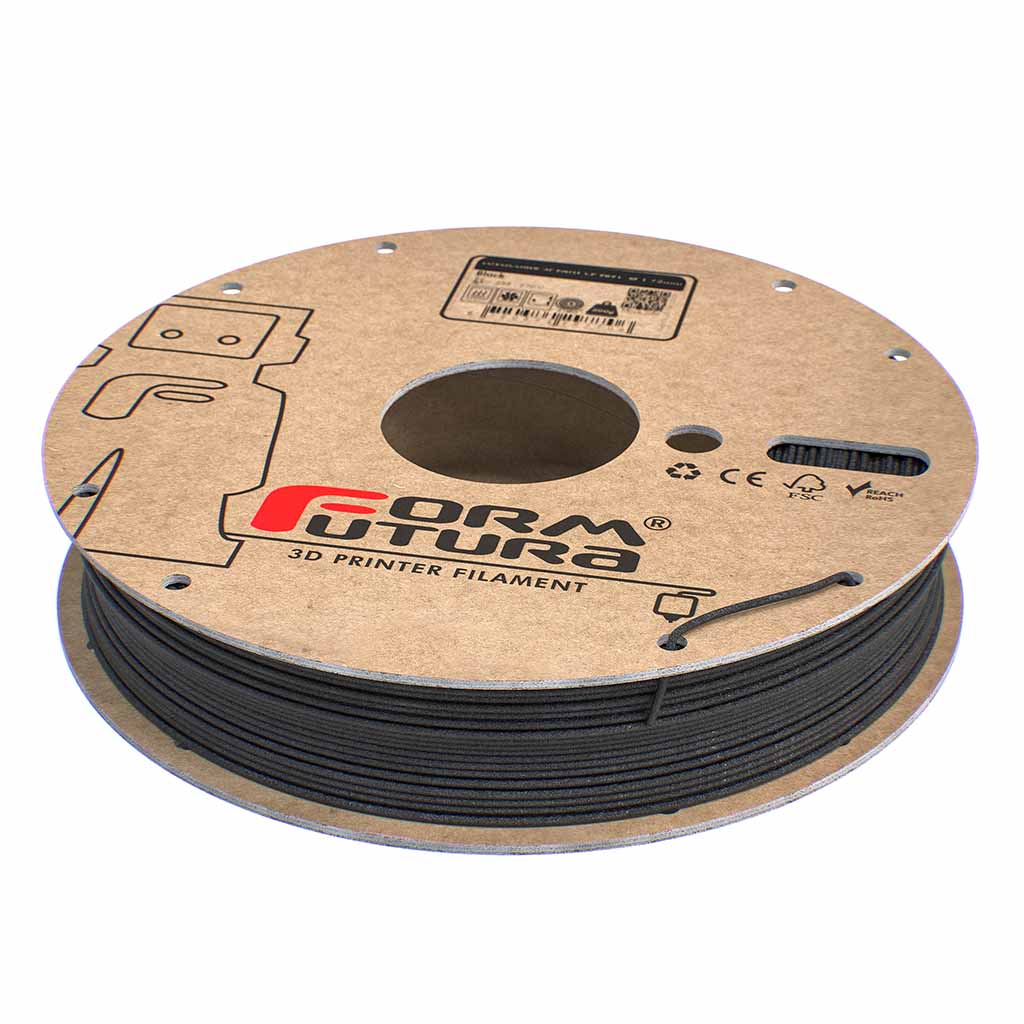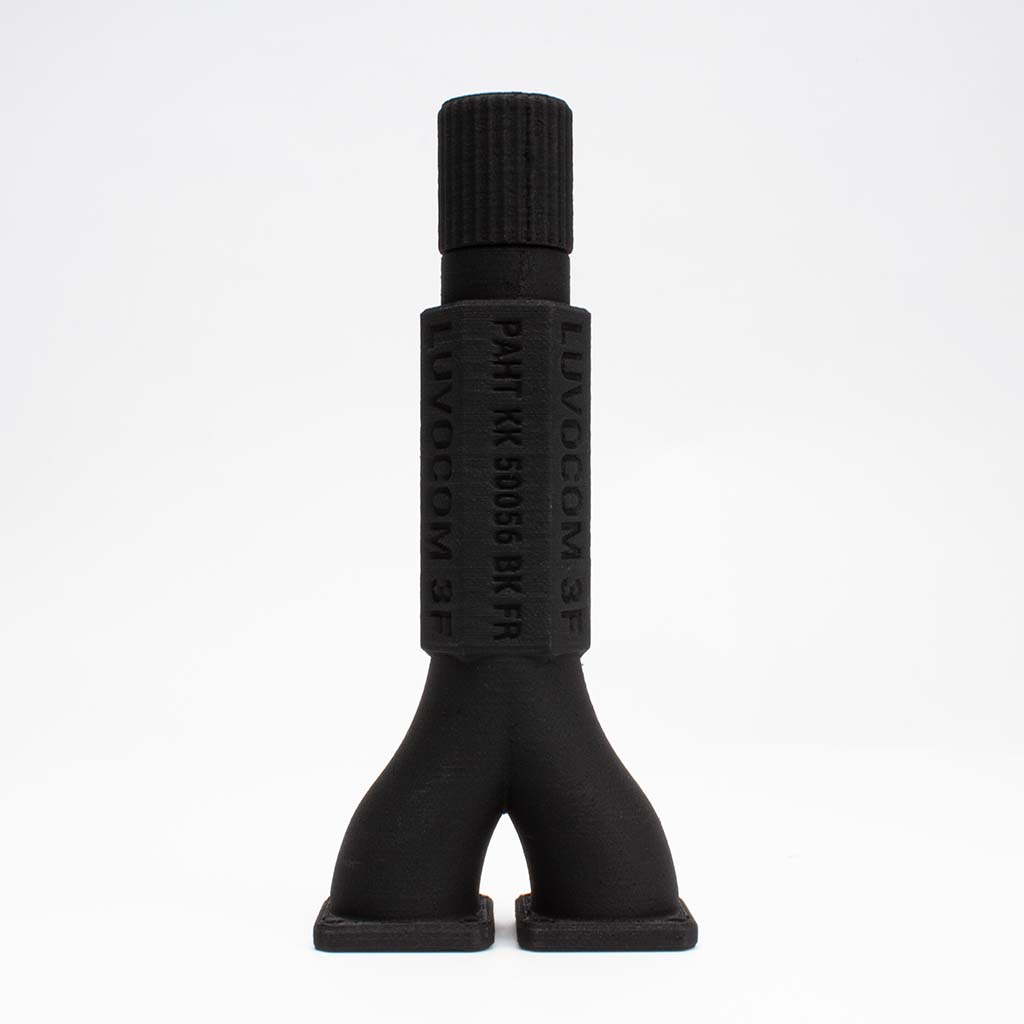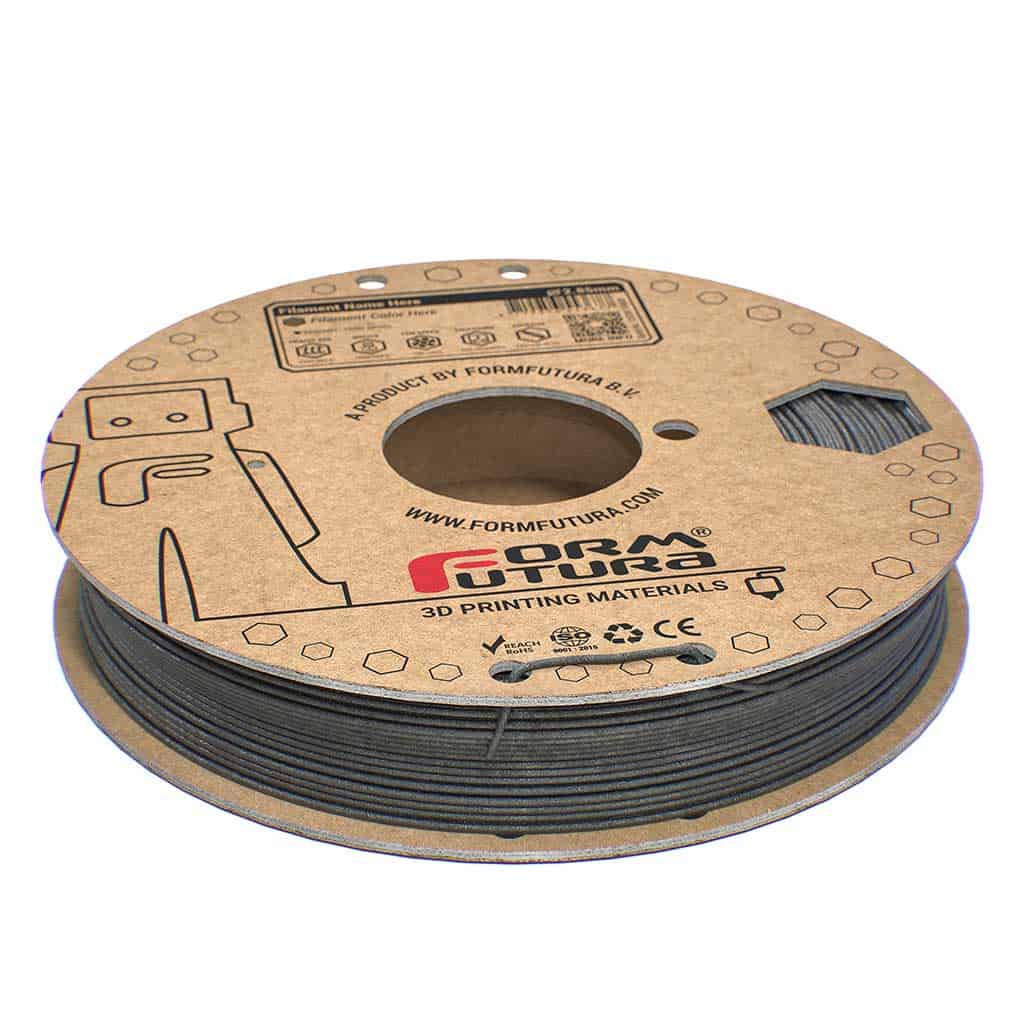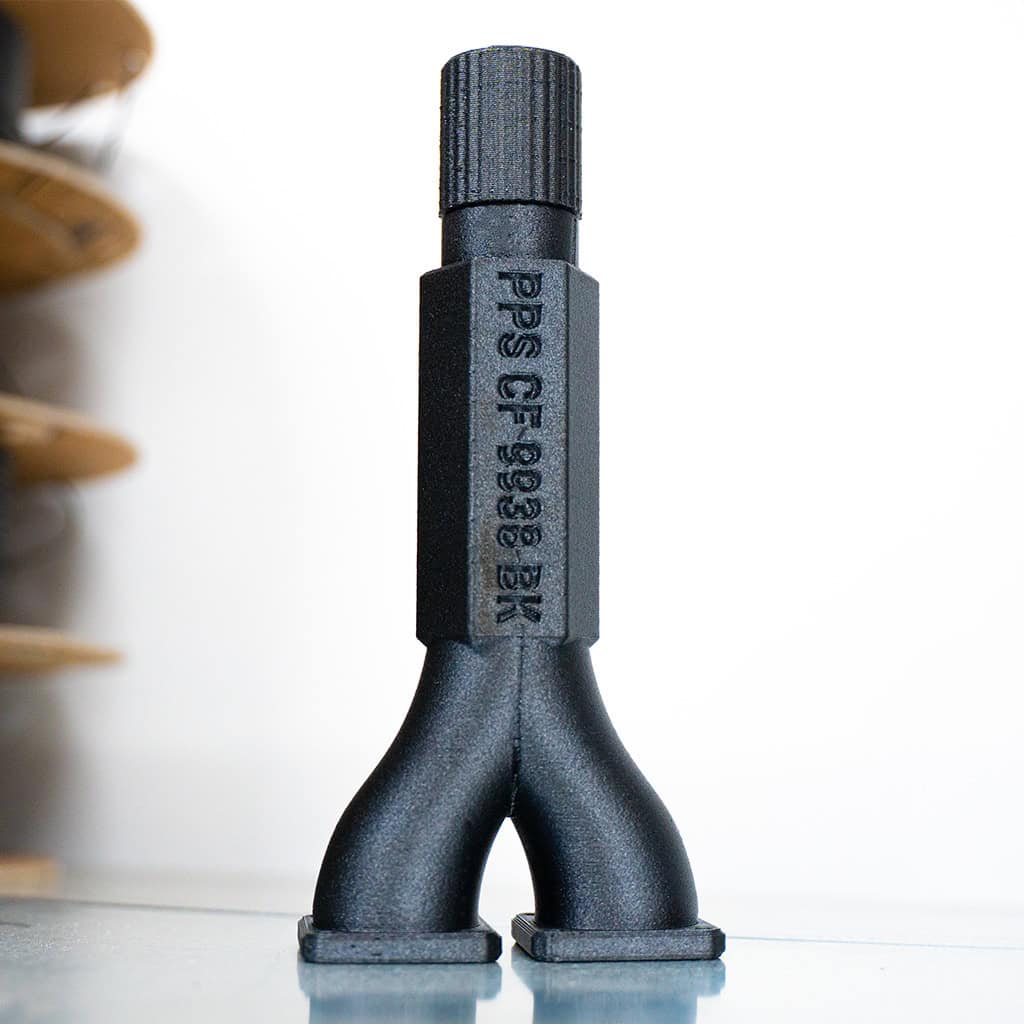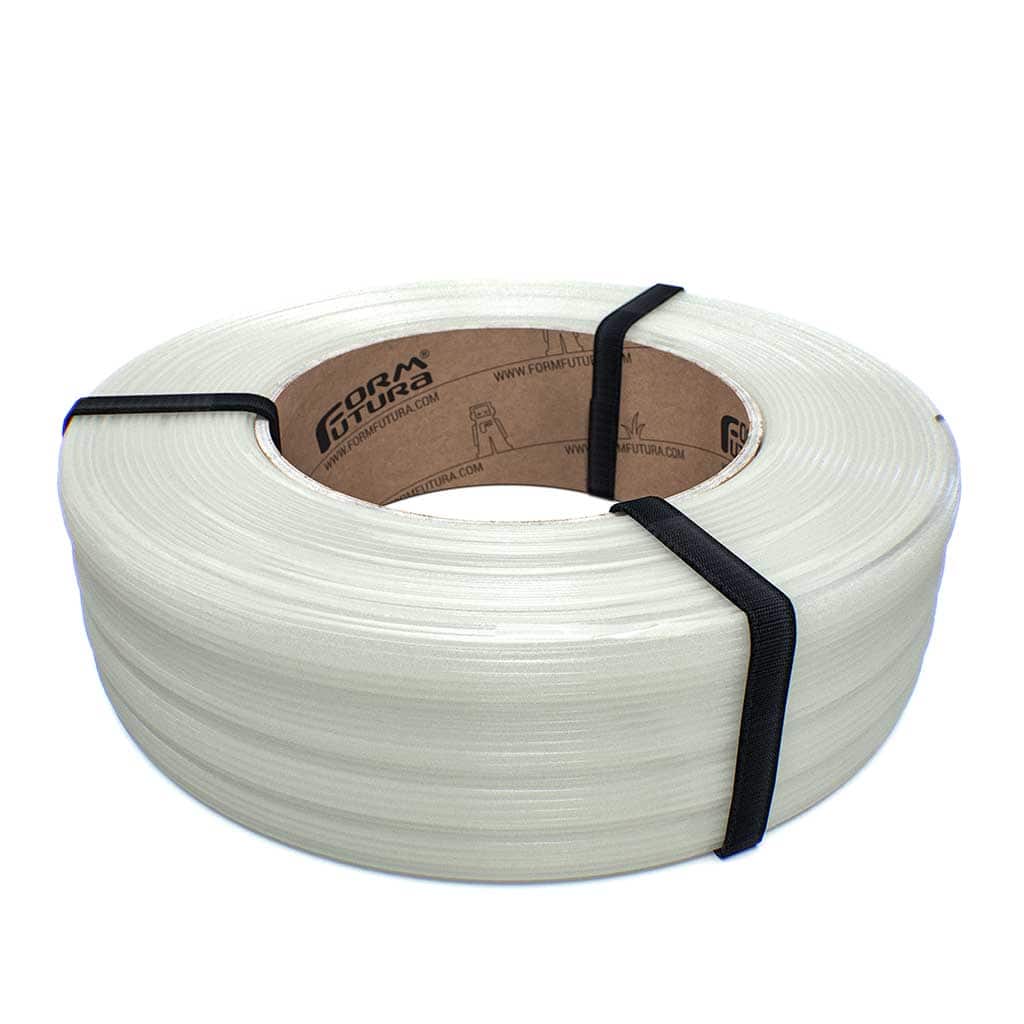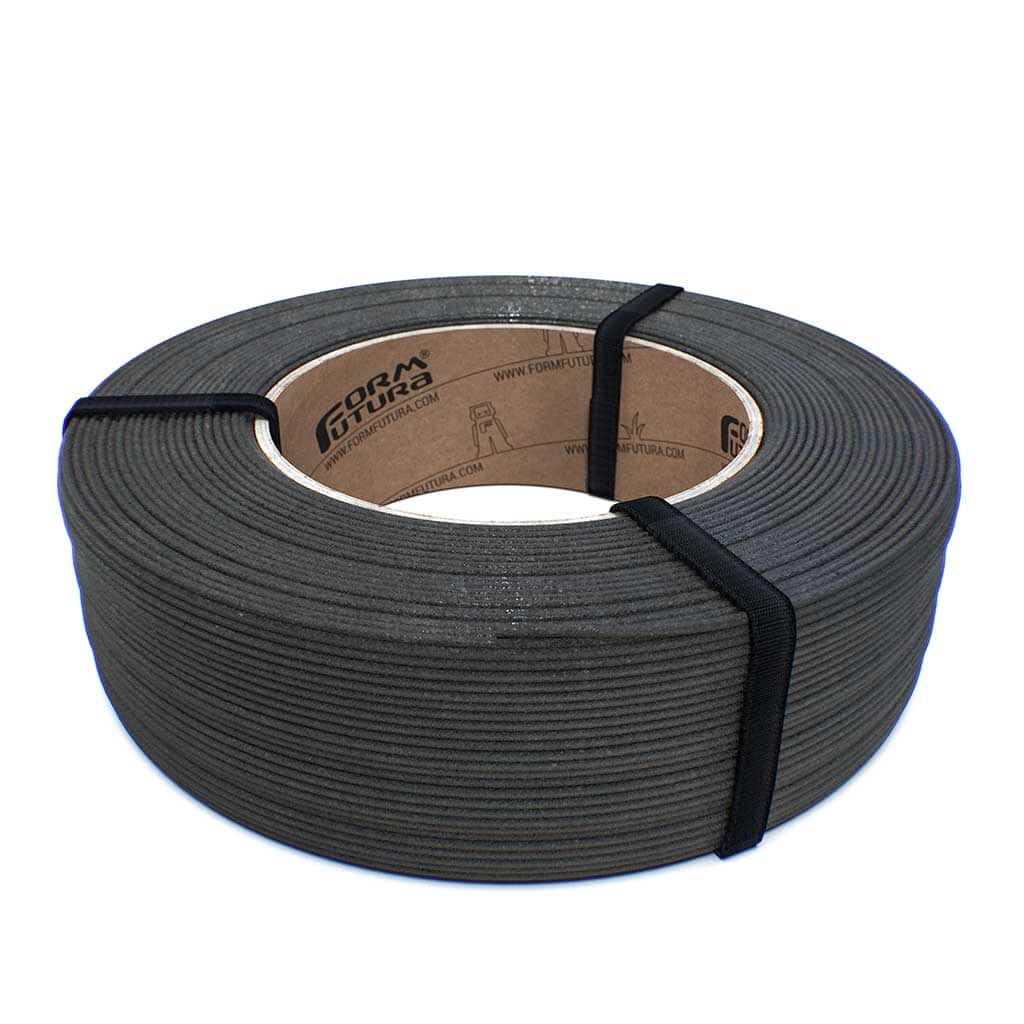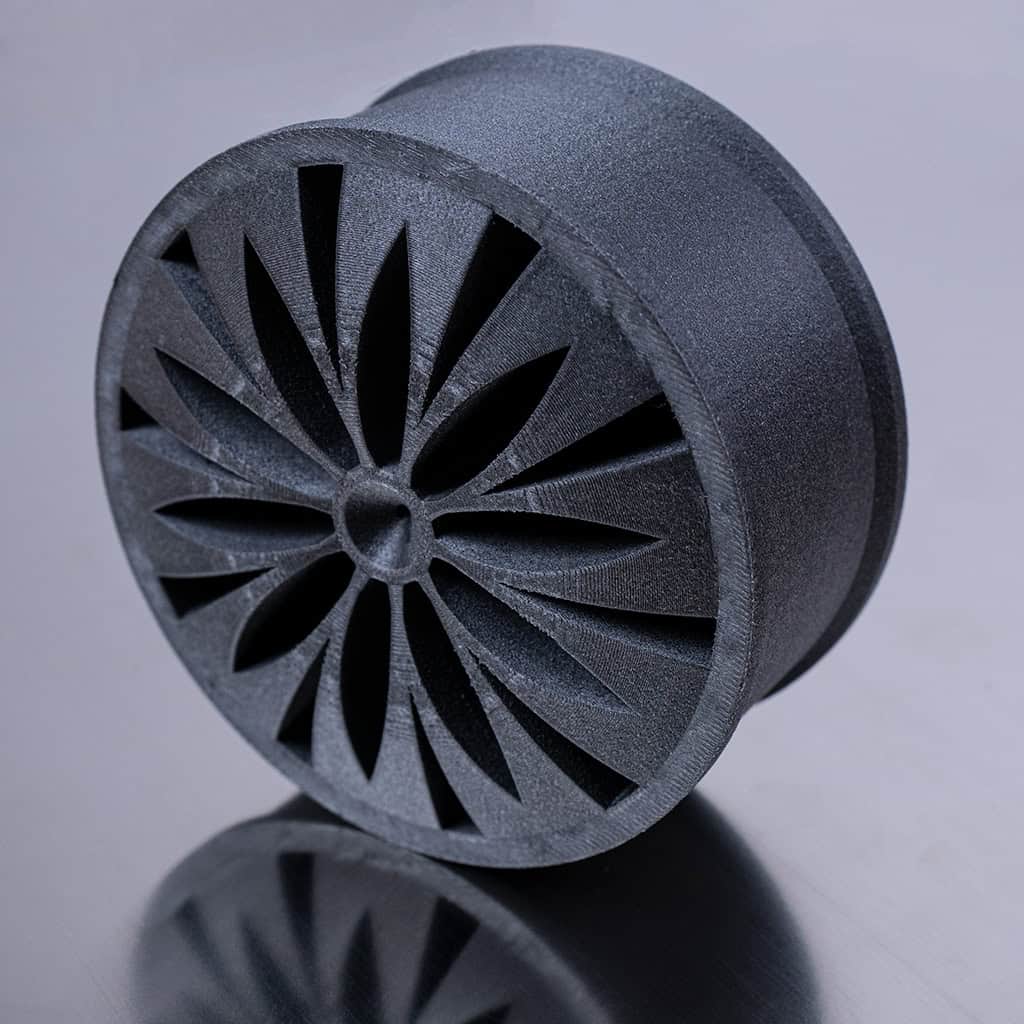AquaSolve PVA (polyvinyl alcohol) is a water-soluble support material for complex multi-extrusion 3D printing. It exhibits an excellent thermal stability and can be printed at relatively low temperatures. This makes AquaSolve PVA an ideal support material for PLA-based materials with good thermal and chemical adherence.
Key features
- Excellent (cold) water solubility
- Good thermal stability, resulting in less risk on deterioration/crystalizing inside the nozzle
- Max thermal stability of 210° C, tested up to 256 seconds with no flow
- Biodegradable once dissolved in water
- Safe dissolution in tap water
- Can be disposed of in the kitchen sink, or household drain as the material is “ok biodegradable water” certified
- Good bonding to PLA-based materials and other (thermo)plastics that print within a similar temperature range
Applications
- Reliable multi-extrusion 3D printing of complex structures that require a water-soluble support material
- 3D printing geometries with large overhangs, or complex hollow structures
- PVA Molds
General printing guidelines *
| Nozzle size: ≥ 0.15mm | Layer height: ≥ 0.1mm | Experience level: Expert |
| Print temp: ± 190 – 210° C * | Fan speed: 0 – 30% | |
| Heat bed: ± 0 – 60° C | Enclosure needed: No |
*) Above displayed settings are meant as guidance to find your optimal print settings. These ranges in settings should work for most printers, but please do feel free to experiment outside these ranges if you think it is suitable for your printer. There are a lot of different type of printers, hot-ends, and printer offset that it is extremely difficult to give an overall one-size-fits-all setting.
*) Do not exceed a printing temperature of 225˚C, because AquaSolve PVA will then crystallize to quickly and it will no longer flow and/or dissolve in water. Printing with PVA materials does require a certain level of 3D printing expertise as PVA cannot stay too long in the hot secondary/support nozzle and needs to flow and by that needs expert tweaking to find the optimal “waiting temperature” for the material not to deteriorate/crystalizing in the hot secondary/support nozzle when not being 3D printed.
Filament length
| ρ: 1.23 g/cc | 50 gr coil | 0.3 Kg spool | |||
| Ø 1.75mm | ± 16.9m | ± 101m | |||
| Ø 2.85mm | ± 6.4m | ± 38m |
PVA compatibility overview *
| AquaSolve PVA | Atlas Support | Helios Support | |
| ABSpro | – | – | + |
| ABSpro Flame Retardant | – | – | + |
| ApolloX | – | – | ++ |
| CarbonFil | – | ++ | – |
| Centaur PP | No data | No data | No data |
| ClearScent ABS | – | – | ++ |
| Crystal Flex | – | – | + |
| Easywood | + | +/- | – |
| Refill PLA | + | +/- | – |
| EasyFil ePLA | + | +/- | – |
Safety Datasheet:
AquaSolve – PVA
AquaSolve is a water-soluble PVA type of 3D printer filament that is ideal as support material for complex multi-extrusion 3D printing with PLA based filaments as build material.
- Ordered before 15h CET? Ships same business day
- Worldwide shipping with UPS & FedEx
- One-stop shop for 3D printing materials
Featured Products
AquaSolve – PVA
AquaSolve is a water-soluble PVA type of 3D printer filament that is ideal as support material for complex multi-extrusion 3D printing with PLA based filaments as build material.
If a product is out of stock, it is usually replenished within two weeks.
- Ordered before 15h CET? Ships same business day
- Worldwide shipping with UPS & FedEx
- One-stop shop for 3D printing materials
AquaSolve PVA (polyvinyl alcohol) is a water-soluble support material for complex multi-extrusion 3D printing. It exhibits an excellent thermal stability and can be printed at relatively low temperatures. This makes AquaSolve PVA an ideal support material for PLA-based materials with good thermal and chemical adherence.
Key features
- Excellent (cold) water solubility
- Good thermal stability, resulting in less risk on deterioration/crystalizing inside the nozzle
- Max thermal stability of 210° C, tested up to 256 seconds with no flow
- Biodegradable once dissolved in water
- Safe dissolution in tap water
- Can be disposed of in the kitchen sink, or household drain as the material is “ok biodegradable water” certified
- Good bonding to PLA-based materials and other (thermo)plastics that print within a similar temperature range
Applications
- Reliable multi-extrusion 3D printing of complex structures that require a water-soluble support material
- 3D printing geometries with large overhangs, or complex hollow structures
- PVA Molds
General printing guidelines *
| Nozzle size: ≥ 0.15mm | Layer height: ≥ 0.1mm | Experience level: Expert |
| Print temp: ± 190 – 210° C * | Fan speed: 0 – 30% | |
| Heat bed: ± 0 – 60° C | Enclosure needed: No |
*) Above displayed settings are meant as guidance to find your optimal print settings. These ranges in settings should work for most printers, but please do feel free to experiment outside these ranges if you think it is suitable for your printer. There are a lot of different type of printers, hot-ends, and printer offset that it is extremely difficult to give an overall one-size-fits-all setting.
*) Do not exceed a printing temperature of 225˚C, because AquaSolve PVA will then crystallize to quickly and it will no longer flow and/or dissolve in water. Printing with PVA materials does require a certain level of 3D printing expertise as PVA cannot stay too long in the hot secondary/support nozzle and needs to flow and by that needs expert tweaking to find the optimal “waiting temperature” for the material not to deteriorate/crystalizing in the hot secondary/support nozzle when not being 3D printed.
Filament length
| ρ: 1.23 g/cc | 50 gr coil | 0.3 Kg spool | |||
| Ø 1.75mm | ± 16.9m | ± 101m | |||
| Ø 2.85mm | ± 6.4m | ± 38m |
PVA compatibility overview *
| AquaSolve PVA | Atlas Support | Helios Support | |
| ABSpro | – | – | + |
| ABSpro Flame Retardant | – | – | + |
| ApolloX | – | – | ++ |
| CarbonFil | – | ++ | – |
| Centaur PP | No data | No data | No data |
| ClearScent ABS | – | – | ++ |
| Crystal Flex | – | – | + |
| Easywood | + | +/- | – |
| Refill PLA | + | +/- | – |
| EasyFil ePLA | + | +/- | – |
Safety Datasheet:

